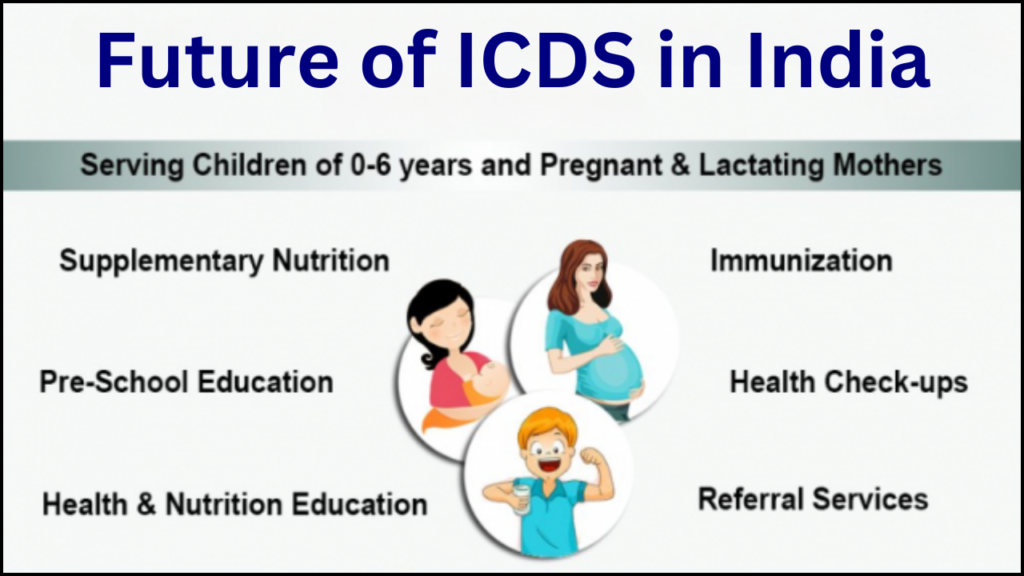
Anemia and micronutrient deficiencies are major public health concerns, especially among women and children in India. These deficiencies can lead to serious health problems, including poor physical and cognitive development in children and complications during pregnancy for women. The ICDS scheme plays a crucial role in addressing these issues by providing nutrition, healthcare, and education to vulnerable groups.
Understanding Anemia and Micronutrient Deficiency
Anemia is a condition where the body lacks enough healthy red blood cells to carry oxygen efficiently. It is mainly caused by iron deficiency but can also result from a lack of folic acid and vitamin B12. Women, especially pregnant and lactating mothers, and children under 05 are most vulnerable to anemia.
Micronutrient deficiency, often called ‘hidden hunger,’ refers to the lack of essential vitamins and minerals such as iron, vitamin A, iodine, and zinc. Even when people consume enough calories, they may still suffer from poor health if their diet lacks these essential nutrients. Deficiencies can lead to:
- Stunted growth and weakened immunity in children
- Fatigue, weakness, and complications during pregnancy
- Cognitive impairments and developmental delays in children
ICDS: A Pillar of Nutritional Support
Launched in 1975, the ICDS is one of India’s most significant programs for child welfare and maternal health. It provides a wide range of services, including supplementary nutrition, immunization, health check-ups, referral services, and early childhood education. The Anganwadi centers, which are the backbone of ICDS, act as community hubs where these services are delivered.
How ICDS Helps Combat Anemia and Micronutrient Deficiency
- Supplementary Nutrition Program (SNP)
ICDS provides take-home rations and hot-cooked meals to pregnant women, lactating mothers, and children under six years of age. These meals are fortified with iron, folic acid, and other essential micronutrients to combat anemia and deficiencies. - Iron and Folic Acid Supplementation
Through ICDS, iron and folic acid tablets are distributed to pregnant women and adolescent girls to prevent and treat anemia. This supplementation is crucial during pregnancy as anemia can lead to complications such as premature birth and low birth weight in babies. - Vitamin A and Other Micronutrient Supplements
ICDS works in collaboration with the health department to provide vitamin A supplementation to children, reducing the risk of blindness and boosting immunity. Other micronutrients like zinc and iodine are also included to ensure balanced nutrition. - Growth Monitoring and Health Check-Ups
Regular growth monitoring at Anganwadi centers helps identify malnourished children early. ICDS workers keep track of children’s weight, height, and overall health, allowing timely intervention if a deficiency is detected. - Nutrition and Health Education
One of the most impactful aspects of ICDS is creating awareness among mothers about the importance of proper nutrition. Anganwadi workers educate families about healthy eating habits, breastfeeding, and ways to include iron-rich foods in daily diets. - Linkages with Health Services
ICDS ensures that children and mothers receive immunization and deworming services, which indirectly help in preventing anemia and malnutrition. By working with the healthcare system, ICDS improves overall maternal and child health.
Challenges Faced by ICDS
Despite its significant impact, ICDS faces several challenges in effectively tackling anemia and micronutrient deficiency:
- Inconsistent Quality of Food: There have been concerns about the quality of food provided through ICDS, with reports of inadequate nutrition content in some states.
- Limited Coverage in Remote Areas: Many rural and tribal areas still lack proper access to Anganwadi centers, making it difficult to reach the most vulnerable populations.
- Lack of Awareness: Some families are unaware of the importance of micronutrients, leading to poor dietary habits despite ICDS interventions.
- Funding and Implementation Gaps: There are occasional delays in fund allocation, affecting the timely distribution of food and supplements.
In Summary
ICDS has been a lifeline for millions of women and children in India, playing a vital role in tackling anemia and micronutrient deficiency. Through its comprehensive services—nutrition supplementation, health check-ups, and awareness programs—it has significantly contributed to improving maternal and child health. However, for ICDS to be more effective, improvements in food quality, coverage in remote areas, and awareness campaigns are essential. Strengthening this program will ensure a healthier and more nourished future for India’s next generation.